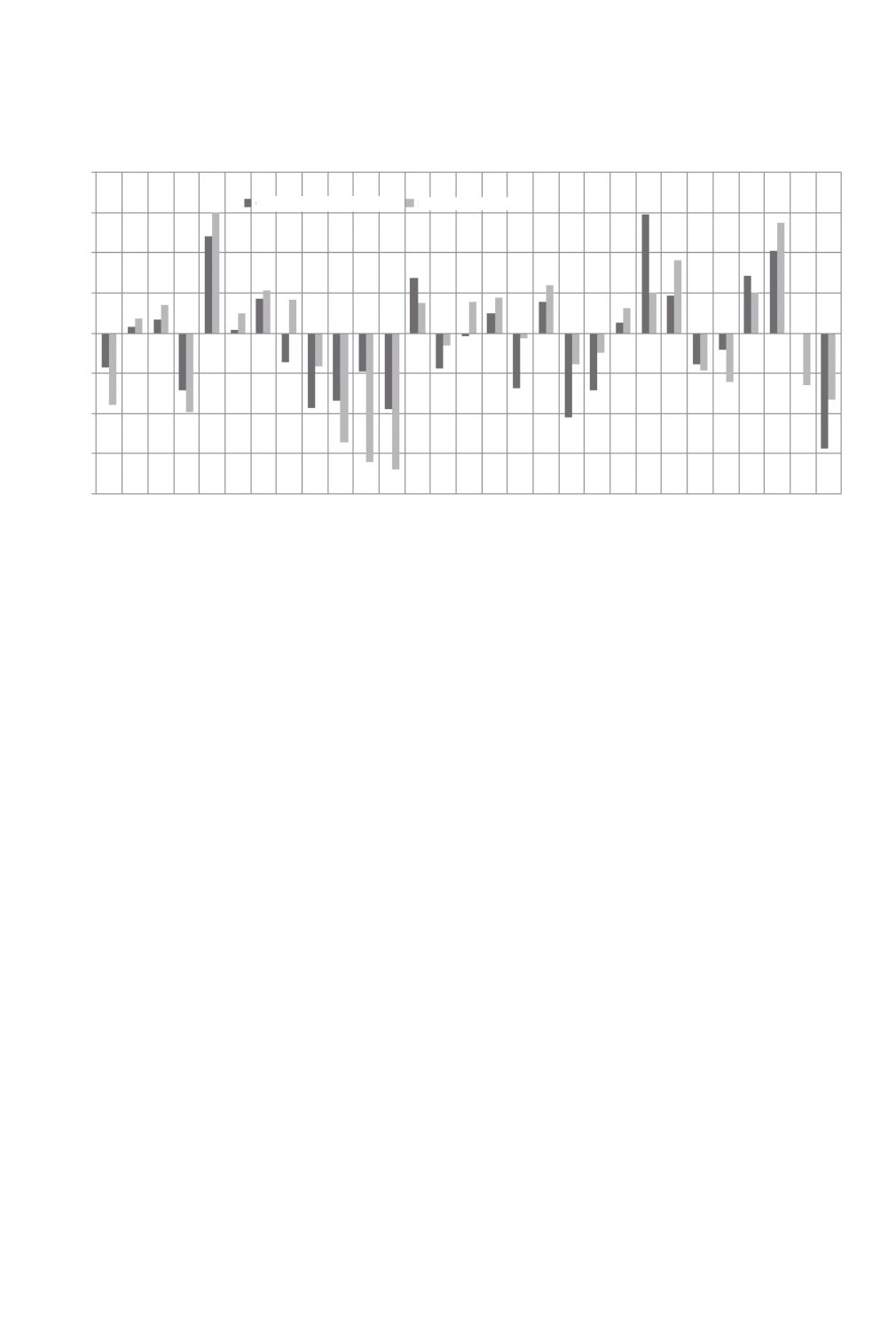
37
Collaboration Between Think Tanks and Government in the Development of Public Policy
Figure 2: Government Effectiveness, Regulatory Quality
and Think Tanks in Latin America
†
Source 1: Kaufmann, Daniel, Aart Kraay and Massimo Mastruzzio,
Worldwide Governance Indicators
(WGI) Project
, World Bank.
>.
Source 2: McGann, James G., Ph.D.,
The Global “Go-To Think Tanks” 2010
(Philadelphia, PA: University
of Pennsylvania, 2008-2011), Think Tanks and Civil Societies Program. <
/
global-%E2%80%9Cgo-to-tanks-leading-public-policy-research-organizations-world/>.
From Thinking and Ideas into Action
It could be inferred that the main role of think tanks is to analyze
and develop public policy. However, the true relevance of these
organizations is determined by their ability to influence those actors
responsible for the design and implementation of public policies. A
think tank that limits itself to policy formulation and analysis and
does not have the capacity to exert influence in order to affect the
implementation of policy is ultimately an irrelevant organization.
Depending on an organization’s mission, different think tanks may
choose to focus on influencing specific groups or sectors of society as
part of their advocacy efforts.
†
For figure 2, only countries covered by the Governance Index and have at least two think tanks were
considered.
2.0
1.5
1.0
0.5
0.0
-0.5
-1.0
-1.5
-2.0
Argentina (131)
Brazil (81)
Mexico (57)
Bolivia (51)
Chile (42)
Colombia (40)
Costa Rica (33)
Peru (32)
Paraguay (27)
Ecuador (18)
Cuba (18)
Venezuela (17)
Uruguay (17)
Rep. Dominicana (15)
El Salvador (13)
Panama (12)
Guatemala (11)
Trinidad y Tabago (10)
Nicaragua (10)
Honduras (9)
Jamaica (7)
Barbados (7)
Puerto Rico (5)
Belize (4)
Guyana (3)
Dominica (3)
Bermuda (3)
Suriname (2)
Haiti (2)
Government Effectiveness Regulatory Quality


